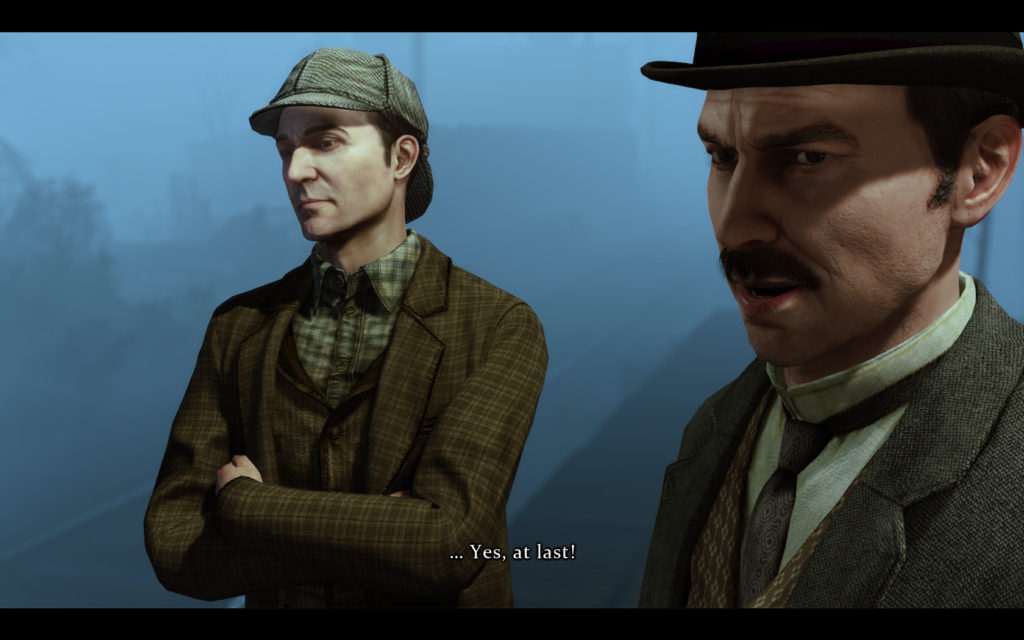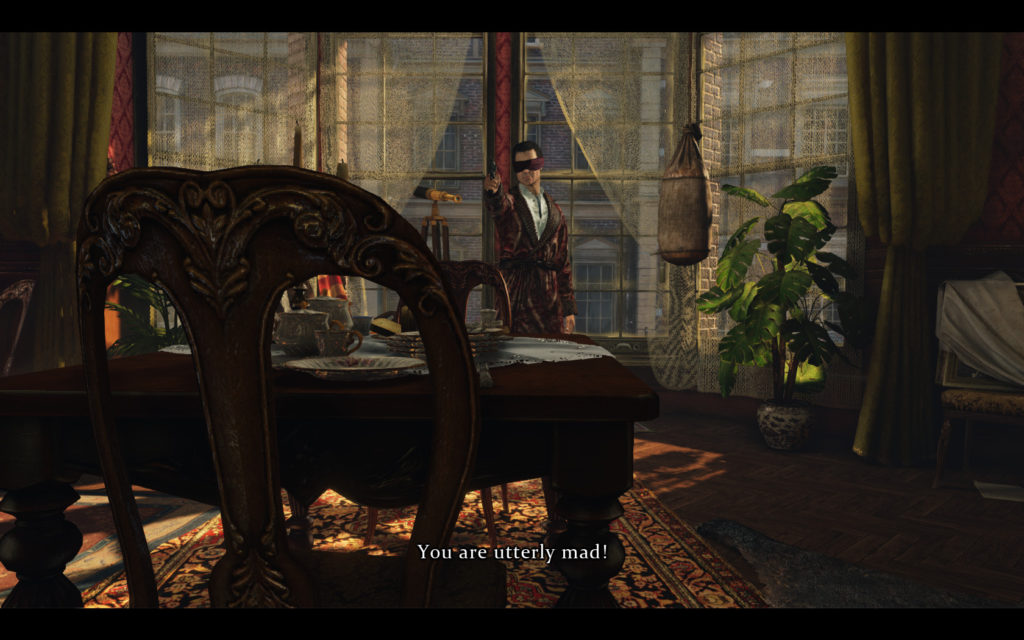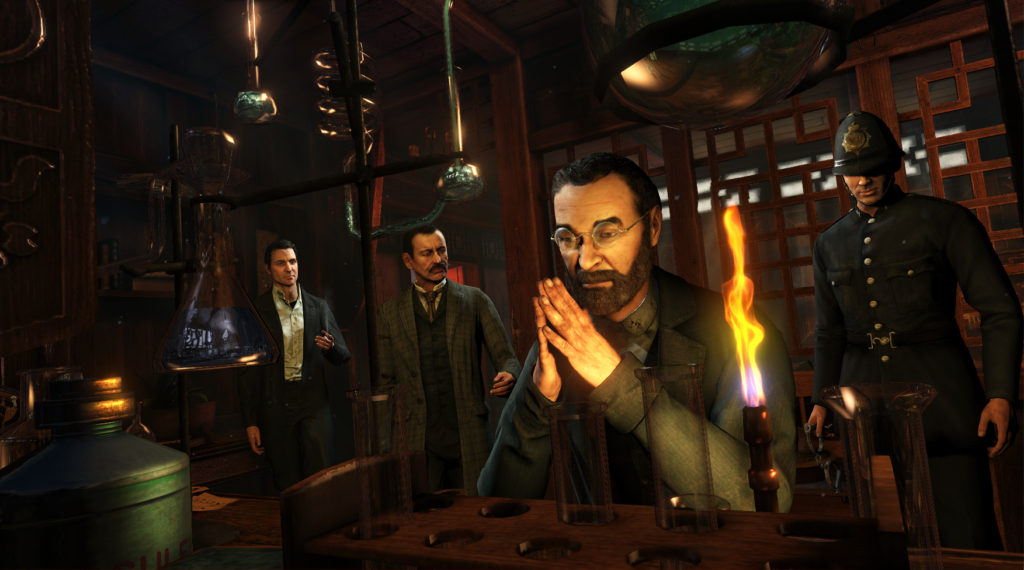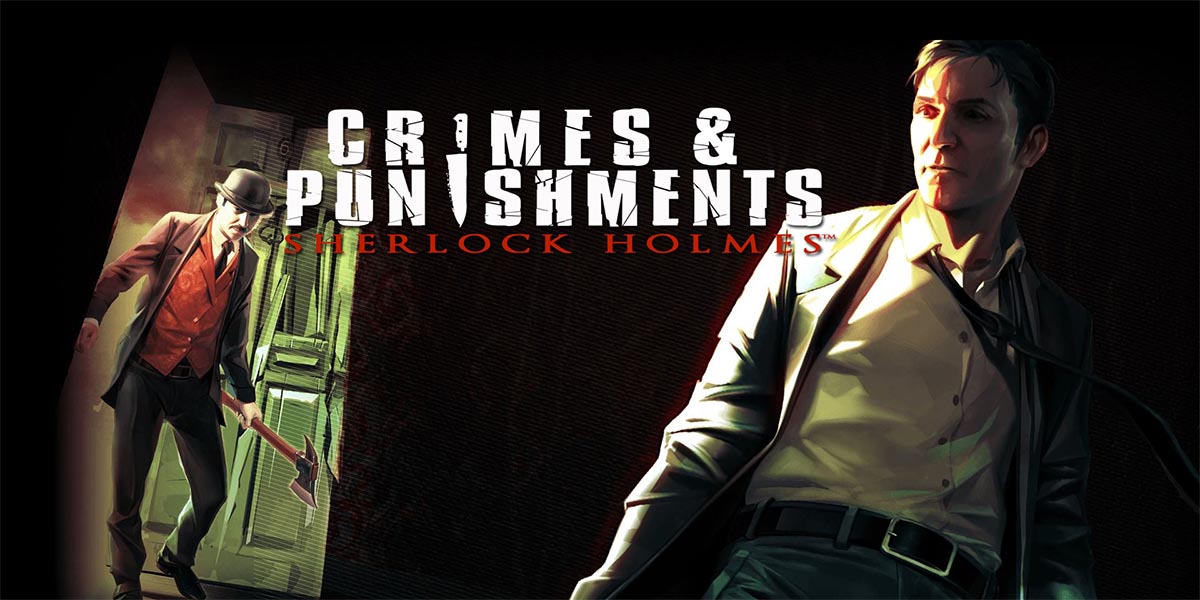If like me, you think that Stephen Moffat should be thrown into the Thames for crimes against literary fiction, you’ll probably enjoy Sherlock Holmes: Crimes and Punishments.
Frogwares’ take on Holmes brings it back to Conan Doyle’s original text. Although it’s not a straight adaptation of any particular story, at least Holmes uses deductive reasoning to solve mysteries, rather than being superhumanly intelligent, finding all the clues off-screen, or calling up his mate at the MoD. (I’m looking at you, Cumberbatch.)
The first thing that struck me is how great the current-gen port of the game looks and runs regardless of the platform you choose to play it on. It’s clear that Frogwares’ have taken great pains to recreate Victorian London in rich yet grimy detail.
The characters are also brought to life with brilliant design and superb voice acting from all of the main cast. Something that’s all the more important when something as small as a scuff on a shoe or a line of dialogue can break a case wide open.
Throughout six loosely interconnected cases, Holmes and Watson examine crime scenes, speak to witnesses, and interrogate suspects. In a nice twist, there isn’t simply one linear path through each case either, though some are better than others, as making the wrong conclusion, missing a piece of evidence, or simply taking too long can shut off lines of enquiry. (Though, there are usually plenty more.)

Each scene can be played in either first or third person. Firs is often useful for seeing finer details in the environment, but you can see Holmes and his marvellous, customisable attire in third person.
Examing objects in the environment is as simple as walking up and pressing the examine button the game then single’s them out and lets you get a better view, or holmes will pick them up to focus on specific details.
There’s also an Arkham-style detective mode that picks out details and objects in the environment that other less savvy characters may have overlooked if you stare at them long enough.

Holmes then retreats to his Mind Palace, which sees thoughts floating on the screen like in BBC’s Sherlock, but it’s actually useful, rather than a load of pointless, visual noise.
Once you feel you’ve gathered enough evidence in an area, you can activate deduction mode. This sees you link various clues together using deductive reasoning to attempt to figure out a way forward. In a clever twist, though, you can get things wrong, and the game won’t tell you until the end of the chapter whether you got it right. This stops players from being able to brute force their way through the game and instead forces you to think things through and be as thorough as you can be.
Unfortunately, Sherlock Holmes: Crimes and Punishments inherits an irritating issue most adventure games have. You need to figure out the developers’ line of reasoning to get the best results. There are times when your deductions may appear perfectly logical, but the game thinks they’re wrong anyway. This is, of course, a nit-pick.

Also, some of the puzzles can be a bit obtuse and slow the game’s pace to a crawl, and it wasn’t particularly fast-paced, to begin with. (Thankfully, these can be skipped).
It’s clear Frogwares understand the structure of Holmes as a series, though like, each case, which runs at about two hours apiece, is set up like a police procedural, one’s you could complete during a day’s commute or a couple of lunch breaks. Just like the original stories.
Overall, Sherlock Holmes: Crimes and Punishments is a compelling outing for the gentleman detective. It looks great and plays well, with only a couple minor annoyances detracting from the fun. If you’re a fan of Holmes or want a decent mystery to mull over, Sherlock Holmes: Crimes and Punishments is worth uncovering.

